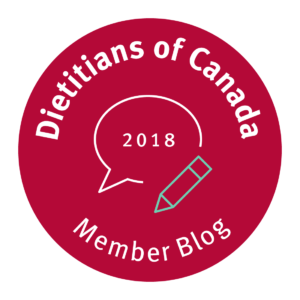Fad diets can seem fun and exciting, but can you maintain them for life?
Diets such as Paleo, gluten-free, alkaline, and juice cleanses have been gaining popularity over the past few years. These fad diets or guides to the “healthiest” way to eat can seem fun and exciting: a solution to weight loss, a strategy to feel more energetic, or even a cure for diabetes or heart disease. Maybe you’ve wondered about whether or not you should try one of these diets? Unfortunately, there is no one magic diet, but healthy eating doesn’t have to be too complicated!
What is dieting?
Fad diets require that you follow a certain structured way of eating. Usually, there is a specific list of types and amounts of foods that are described as the right way to eat.
Is there anything good about dieting?
When people are dieting, they’re often more aware of what they are eating. In other words, because they are “on a diet,” they may eat more fresh fruits and vegetables and choose whole grains and lean meats in reasonable portion sizes. Dieters also tend to limit (or eliminate!) processed foods and beverages that contain excess fat, sugar and or salt.
So what’s the downside?
Diets can be restrictive to the point where it’s challenging for people to grocery shop, enjoy their favourite foods, or share meals with friends and family. This type of restriction is not sustainable, and it is often discouraging to the point where people give up. “Giving up” usually means reverting to a previous way of eating or overeating foods on the diet’s “not allowed” list – foods that are often less healthy choices. More often than not, people who do lose weight after dieting tend to regain the weight they lost and sometimes even more. This is especially common after people have been on very low calorie diets (1,2,3,4,5).
Diets are generally not based on evidence. In other words, there is usually little to no research to support that anyone should be on a “special” diet (5). Exceptions to this rule include those with Celiac Disease or gluten sensitivity who need to be on a gluten-free diet and others with chronic disease(s) who require a therapeutic diet.
So what SHOULD you do?
Ideally, any pattern of eating you choose should be one you can maintain for life.
Here are some tips to help you get started with a way of eating (not dieting!) that works best for you:
- Find The Joy in Eating, and appreciate The Art of Healthy Eating; know that there is no one way of eating that will work for everyone
- Speak with a registered dietitian: call 811 to speak to a dietitian in BC, or look on the Dietitians of Canada website to find an RD in your community
Additional Reading:
- About Healthy Eating
- Picture of a balanced diet
- Healthier grocery shopping
- Is the Alkaline Diet Worth the Hype?
- Cleansing and Detox Diets
References
- Aphramor, L. (2010). Validity of claims made in weight management research: a narrative review of dietetic articles. Nutrition Journal. doi:10.1186/1475-2891-9-30
- Bacon, L., Aphramor, L. (2011). Weight Science: Evaluating the Evidence for a Paradigm Shift. Nutrition Journal, 10(9). doi:10.1186/1475-2891-10-9
- Bild, D. E., Sholinsky, P., Lewis, C. E., Hardin, J. M., Burke, G.L. (1996). Correlates and predictors of weight gain in young adults: the CARDIA study. International Journal of Obesity Related Metabolic Disorders, 20, 47-55.
- Neumark-Sztainer, D., Wall, M., Haines, J., Story, M., Eisenberg, M. (2007). Why does dieting predict weight gain in adolescents? Findings from Project EAT-II: A 5-year longitudinal study. Journal of the Academy of Nutrition and Dietetics.
- Pietilainen, K. H., Saarni, S. E., Kaprio, J., Rissanen, A. (2011). Does dieting make you fat? A twin study. International Journal of Obesity. doi: 10.1038/ijo.2011.160
by Kirstie Hilverda, dietetic intern, and Rola Zahr, MPH, RD

